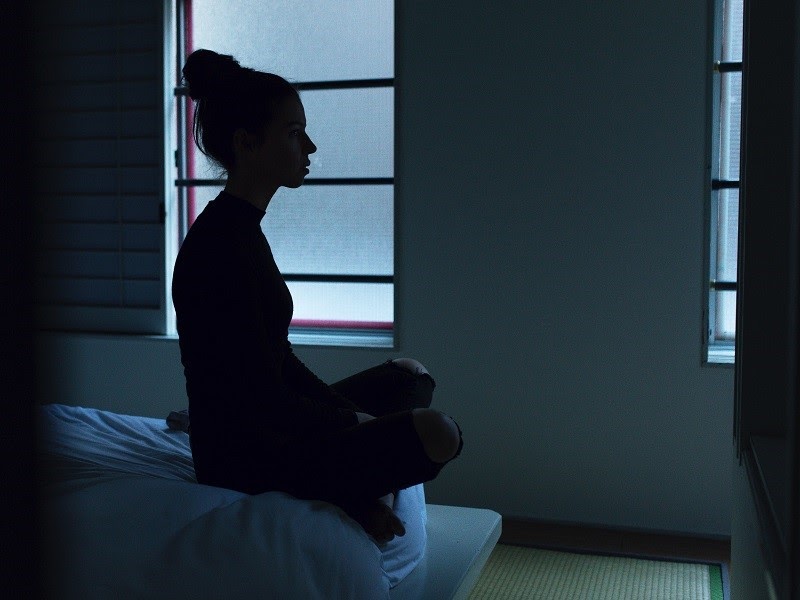It is no secret that the COVID-19 pandemic has disrupted almost all aspects of normal, daily life. Many offices are shut down, with their employees working from home. Restaurants suffer from capacity and alcohol restrictions, while nightclubs have been closed indefinitely since the national lockdown began in March. Gyms and athletic clubs are in a similar boat, operating at limited capacity and offering limited services. Concerts seem a thing of the past, as with any similar large gathering that brings people physically close together.
All of these disruptions to regular life have had a significant effect on people’s physical, mental, and emotional health, which can manifest itself in several different ways. One of the most common ways in which multiple forms of stress can manifest itself is through the dreaded curse of insomnia. Defined as a “sleep disorder in which you have trouble falling and/or staying asleep,” insomnia can be categorized as either short-term (acute) or long-term (chronic). Likely to no one’s surprise, the high levels of stress and anxiety brought about by the pandemic has seen an uptick in cases of clinical insomnia. Dubbed “coronasomnia,” the rising cases of sleeplessness can be attributed to an overall decrease in production and physical activity (which can throw off the body’s innate circadian rhythm). While “coronasomnia” can be a frustrating thing to deal with, there are ways to be able to get sleep and count the sheep that you deserve! Keep reading to find out how!
1. Listen to your body
Above all, it is important to listen to your body! If you are feeling tired and are able, simply go to bed! Fighting your fatigue will do no one any favors in the long run, and can be detrimental to your health if it becomes a chronic problem. Recognizing your body’s signals and triggers can help you achieve adequate rest.
2. No screens!
One of the biggest culprits in preventing sleep is the dreaded blue light that comes from our devices. It is undoubtedly tricky to stick to this rule, but most doctors recommend shutting down the phones, tablets, and laptops at least an hour before bedtime. This allows your pineal gland to work undisturbed in creating more melatonin to make you more sleepy and prepared for bed!
3. Create a routine
The formation of a bedtime routine can be integral in defeating insomnia. A relaxing bedtime regimen can help both your mind and body shake off the stress of the day and get ready to crawl under the covers and rest. Activities such as drinking a sleepy-time tea, reading a book, doing light yoga, or a particular creative hobby can be worked into your newfound routine in order to help you unwind.
4. Watch your diet
It may seem like common sense and knowledge, it is important that you avoid certain foods before bedtime in order to be able to get better sleep. Caffeine, for instance, is probably the biggest culprit in inducing insomnia. While you may not down a cup of coffee shortly before it is time to hit the hay, drinks such as pop can be equally as guilty in supplying you your caffeine.

5. Manifest a soothing environment
The importance of a sleep environment cannot be understated! You cannot expect to get enough rest if you are not comfortable in your own bedroom! Try creating a calm and soothing environment by lighting relaxing candles and utilizing essential oils for relaxation. If you are less into scents and more into comfort items, pile your bed up with pillows and blankets until you feel as if you created your own personal oasis of comfort!
6. Journal
If you find that your mental worries are what keep you up at night, why not give journaling a try? The act of journaling itself comes with a myriad of benefits and is one of the most common therapeutic techniques you can perform yourself. Writing out your deepest stressors and thoughts can be incredibly calming, allowing you to organize your thoughts and make sense of your feelings. Putting your stress and anxiety down onto paper may end up soothing your mind and helping you sleep.
7. Get up
While this may seem like a paradox, it is important to get up if you find yourself stuck in bed unable to sleep. The more you toss and turn aimlessly, the more stress you will experience due to your insomnia. If this happens to you frequently, try getting out of bed and doing a calming activity, such as reading a book or finger-knitting a blanket! These soothing actions may be just what you need to calm your mind and body to get a proper night’s sleep.
8. …and get moving!
Proper exercise is key in maintaining your body’s proper function. While it is not only great for your physical health, exercise can assist in stress and anxiety relief. If going to the gym is not an option, try taking a brisk walk around your neighborhood or doing some body weight exercises at home. However, be careful not to exercise too close to bedtime, as too much exercise can also hinder sleep.
9. Be mindful of triggers
Certain products such as alcohol and tobacco can impede proper sleep. Nicotine in particular is likely to cause sleep disruption and intermittent waking. While it may not be necessary to completely cut these habits from your life, limiting the amount of nicotine and alcohol you consume shortly before bedtime might aid in achieving a more restful night of sleep.

Insomnia can be a terrible thing to deal with in even the most normal of times, let alone in the year of 2020, where every other day seems to bring more stress and anxiety. However, following these tips above can help you once again get a good night’s sleep and wake up feeling refreshed.
